Members
Project Leader
Nobuaki KONDO
Nobuaki Kondo is Professor at the Research Institute for Languages and Cultures of Asia and Africa, Tokyo University of Foreign Studies. He specializes in the history of Iran and Persianate societies and has worked on Persian documents and the socio-legal history of early modern Iran. Recently, he became interested in Persian historical romances such as Hamza-nama and how these romances spread over the Persianate societies and beyond. His principal works are Islamic Law and Society in Iran (Routledge, 2017) and “Persianate Storytelling and Storytellers in the 16th and 17th Centuries (in Japanese)” Oriento 64-2 (2022), pp. 203–215.
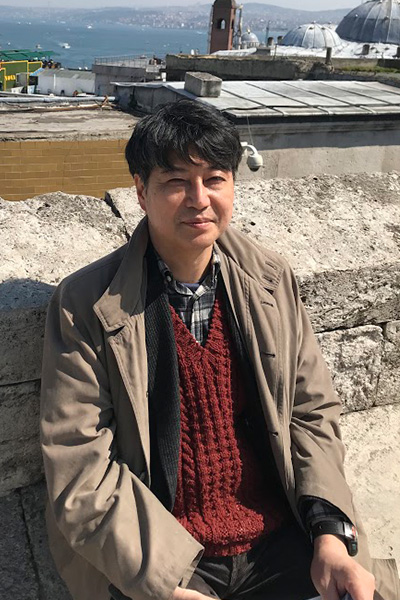
Core Member
Shota FUKUOKA
Shota Fukuoka is Professor at the National Museum of Ethnology the Graduate University of Advanced Studies. He specializes in ethnomusicology. His interest includes the relationship between mass media and music. He has been researching Sundanese music in radio broadcasts and records in Indonesia and on gramophone records of Taiwanese and Korean music under Japanese rule produced by Japanese record companies. He co-authored books (in Japanese), including Ramayana Performance in Contemporary Southeast Asia (Mekon, 2022), Popular Culture in Southeast Asia: Identity, Nation-States, Globalization (Style Note, 2018), Ethnomusicology: From 12 Perspectives (Ongaku no Tomo, 2016).
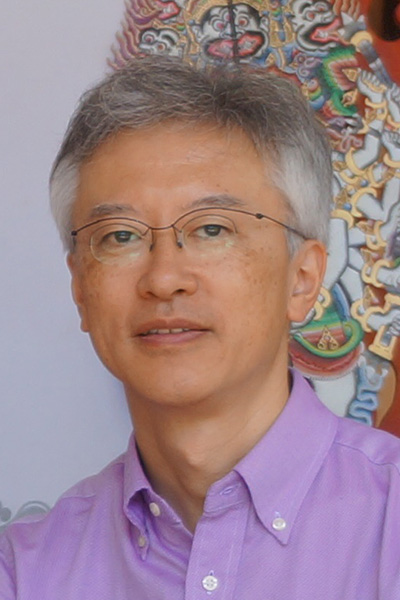
Emi GOTO
Emi Goto is Associate Professor at the Research Institute for Languages and Cultures of Asia and Africa (ILCAA) at Tokyo University of Foreign Studies. Her interests include the contemporary understanding and practice of Islam. In recent years, she has investigated cross-cultural dialogues and gender. Her major publications include Veils for God: Women and the Islam in Contemporary Egypt (in Japanese, Chuokoron Shinsha, 2014) and Created and Contested: Norms, Traditions, and Values in Contemporary Asian Fashion (Research Institute for Languages and Cultures of Asia and Africa, Tokyo University of Foreign Studies, 2022).
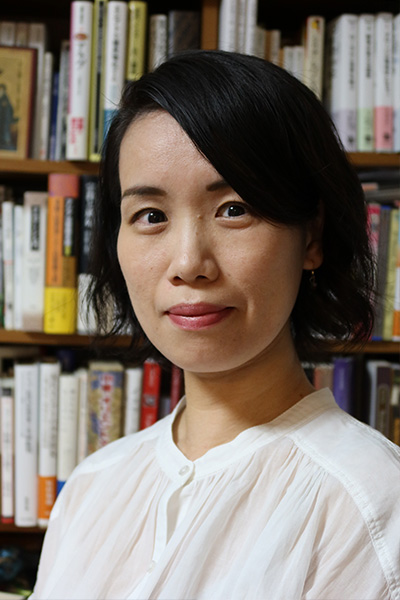
Yui KANDA
Yui KANDA is Assistant Professor at the Research Institute for Languages and Cultures of Asia and Africa, Tokyo University of Foreign Studies. Her research focuses on Islamic works of art (ceramics, metalwork, and illustrated manuscripts) of the late medieval and the early modern period in the Middle East and South Asia. She is the author of “‘If I Circumambulate around Him, I Will Be Burnt’: A Brass Candlestick Endowed to the Mausoleum of Imām Mūsā al-Kāẓim, Kazimayn,” Iran: Journal of the British Institute of Persian Studies (forthcoming); “Kashan Revisited: A Luster-Painted Ceramic Tombstone Inscribed with a Chronogram Poem by Muhtasham Kashani,” Muqarnas 34, 2017, pp. 273–86. Her current project explores the reception history of various versions of Kalilah wa Dimnah in the early modern Persianate world.
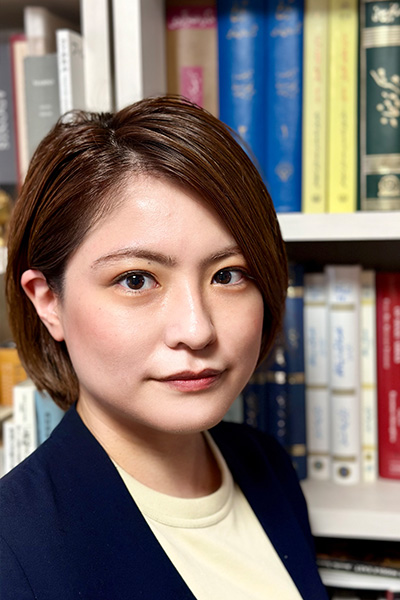
Kota KARIYA
Kota Kariya is Associate Professor at the Graduate School of Arts and Sciences, the University of Tokyo. My research interests focus on the history of Islam in West Africa, especially the political and social history of the Sokoto Caliphate of the nineteenth century. Based on an analysis of Arabic and Hausa sources in particular, I examine Sokoto leaders’ thoughts and the politics and society of the Caliphate. My recent works include “A Treatise on Zinā in the Early Sokoto Caliphate: Muḥammad Bello’s al-Qawl al-Marham,” Journal of Asian and African Studies 101, 2021, pp. 5–17; “Free Choice Theory and the Justification of Enslavement in the Early Sokoto Caliphate,” Islamic Africa, 11 (1), 2020, pp. 1–41; “A Letter from Muḥammad al-Amīn al-Kānemī to a Fulani Muslim Community in Bornu,” Journal of Asian and African Studies 99, 2020, pp. 77–87.
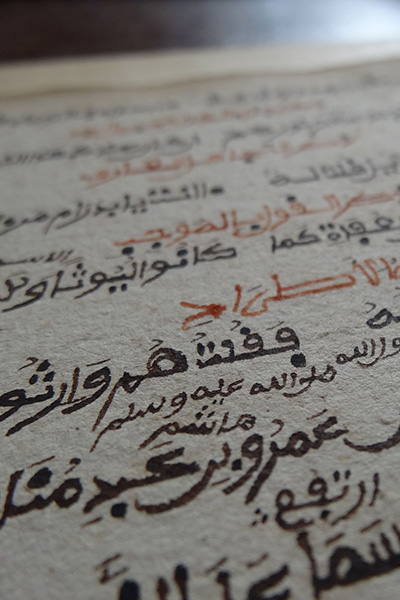
Tatsuya NAKANISHI
Tatsuya Nakanishi is Associate Professor of Institute for Research in Humanities, Kyoto University, Japan. He has studied Hui Muslims’ (Chinese-speaking Muslims) intellectual activities by investigating Chinese, Arabic, and Persian historical sources. Particularly, he has explored how the Hui scholars have negotiated their religious belief and practice with non-Muslim Chinese people. Presently, he is grappling with how, in such negotiations, the Hui scholars responded to new Islamic ideas, such as thoughts of Ibn ʿArabī, Ibn Taymiyya, Aḥmad Sirhindī, and their proponents, from various regions of the Muslim world after the 19th century. His main publications include a Japanese monograph, Chūka to taiwa suru isurāmu: 17-19 seiki chūgoku musurimu no sisōteki eii (Islām in Dialogue with Chinese Civilization: Intellectual Activities of Chinese Muslims during the 17th-19th Centuries) (Kyoto University Press, 2013).
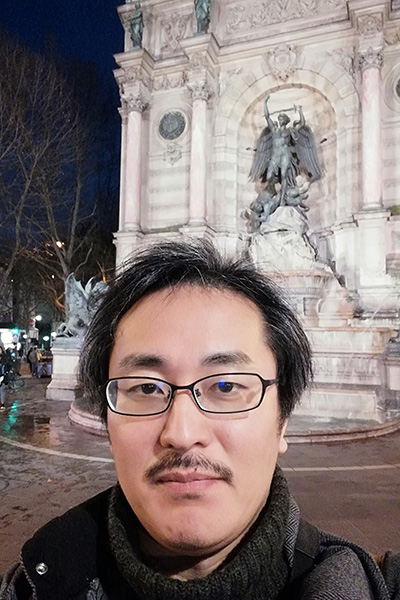
Jin NODA
Jin Noda is currently Professor at Research Institute for Languages and Cultures of Asia and Africa (ILCAA), Tokyo University of Foreign Studies. He works on the history of Kazakhstan and Russo-Qing relations as well as modern Japanese views on the Islamic world. His publications include: The Kazakh Khanates between the Russian and Qing Empires: Central Eurasian International Relations during the Eighteenth and Nineteenth Centuries (Brill, 2016); (Co-editor) Emigrants/Muhacir from Xinjiang to Middle East during 1940–60s (Research Institute for Languages and Cultures of Asia and Africa, Tokyo University of Foreign Studies, 2019).
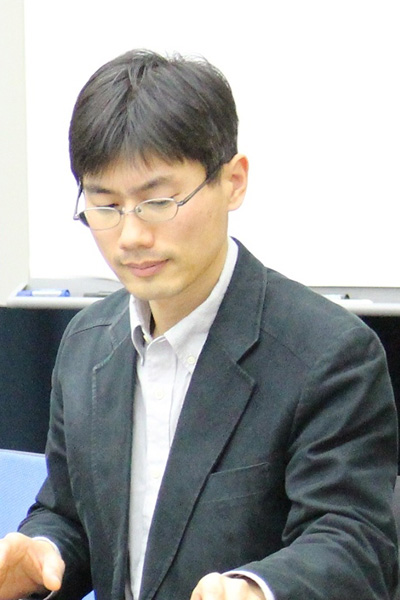
Satoshi OGURA
Satoshi Ogura is Associate professor at the Research Institute for Languages and Cultures of Asia and Africa, Tokyo University of Foreign Studies. His research interests are the history of late medieval Kashmir (Second Lohara dynasty, Shāhmīr and Chak sultanates) and translation projects from Sanskrit into Persian at the Mughal court. He is currently working on editions of the Persian translations of the Rājataraṅgiṇī of Jonarāja and the Yogavāsiṣṭha made at Akbar’s court. His publications include “Incompatible Outsiders or Believers of a Darśana?: Representations of Muslims by Three Brahmans of Šāhmīrid Kašmīr,” Rivista degli Studi Orientali 88 (1-4), 2016, pp. 179–214; “In This Corner of the Entangled Cosmopolises: Political Legitimacies in the Multilingual Society of Sultanate and Early Mughal Kashmir,” Journal of Persianate Studies 12 (2), 2019, pp. 237–260 etc.
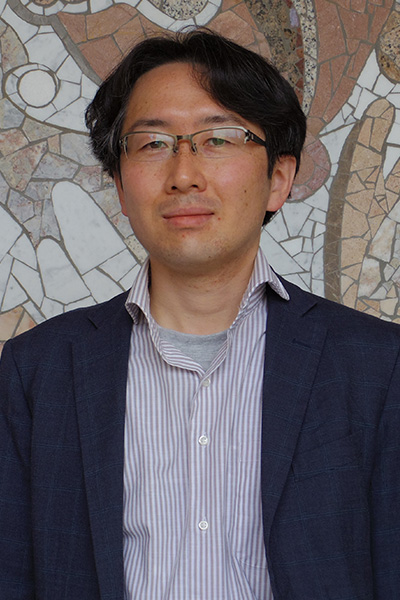
Hiroki OKAZAKI
Hiroki Okazaki is Associate Professor of faculty of International Relations at Asia University. He specializes in modern Arab political thought and contemporary Syrian cultural studies, focusing on the intellectual history of self-criticism by Arab thinkers since the 19th century, as well as Syrian thought, literature, and documentary films since 1967. He is the author of The Arab Critique of Despotism in the Modern Age: Between Orientalism and “Orientalism in Reverse”(University of Tokyo Press, 2021), and the Japanese translator of Outside and Inside the Syrian Prison by Yasin al-Haj Saleh (Misuzu Shobo, 2020).
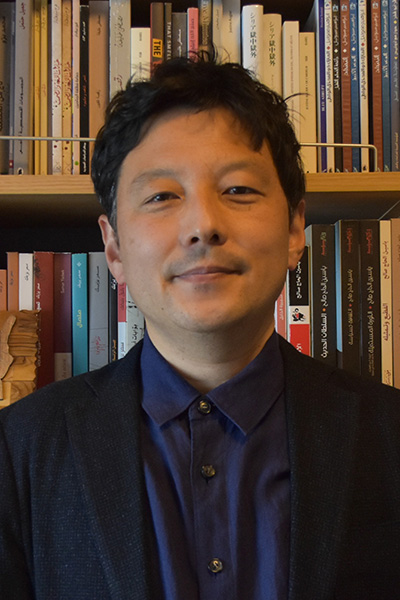
Nobuhiro OTA
Nobuhiro Ota is Professor of South Asian history at the Research Institute for Languages and Cultures of Asia and Africa, Tokyo University of Foreign Studies. His main area of research interest is the relationship between political power and culture in the Kannada-speaking area of South India during the early modern and the colonial periods. His research themes include the influence of Muslim cultures on the vernacular literature and cultures of Hindu-dominated South India. He edited Gatheredness and connectedness in pre-modern South Asian society (in Japanese, Research Institute for Languages and Cultures of Asia and Africa, Tokyo University of Foreign Studies, 2017). He has also published an article, “Who built ‘the city of victory’? Representation of a ‘Hindu’ capital in an ‘Islamicate’ world,” in Crispin Bates and Minoru Mio eds., Cities in South Asia (Routledge, 2015), pp. 27–44.

Osamu OTSUKA
Osamu Otsuka is Associate Professor at the Graduate School of Arts and Sciences, The University of Tokyo. His research interests focus on history of the Middle East and Islamic manuscripts. His publications include The Transformation of the General Histories in Persianate Societies (in Japanese, The University of Nagoya Press, 2017). He has also published an article, “Qāshānī, the First World Historian: Research on His Uninvestigated Persian General History, Zubdat al-Tawārīkh,” Studia Iranica, 47/1, 2018, pp. 119–149.
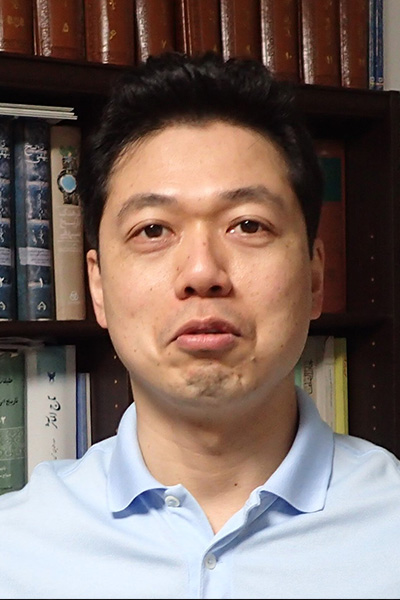
Kaori OTSUYA
Kaori Otsuya is Project Assistant Professor at the Research Institute for Languages and Cultures of Asia and Africa, Tokyo University of Foreign Studies. She has worked on activities of the religious elite and historiographical practices in the late medieval Hijaz. Her new project is about (1) the circulation and reception of Arabic manuscripts on the history of Mecca and Medina, especially in the early modern Persianate world and the Ottoman Empire, (2) translations of local histories of the Hijaz into Persian and Ottoman Turkish, and (3) historiographical practices in the Ottoman Hijaz. Her publications include “Mālikī Imams of the Sacred Mosque and Pilgrims from Takrūr.” Chroniques du manuscrit au Yémen 25 (2018): 53–72; “Marriages of Meccan Scholarly Families in 650–850/1252–1446.” Orient: Journal of the Society for Near Eastern Studies in Japan 54 (2019): 105–125; “Abū Muḥammad ʿAbd Allāh b. Muḥammad b. Farḥūn’s History of Medina.” Proceedings of the Sixth Conference of School of Mamluk Studies. Leiden: Brill, forthcoming.
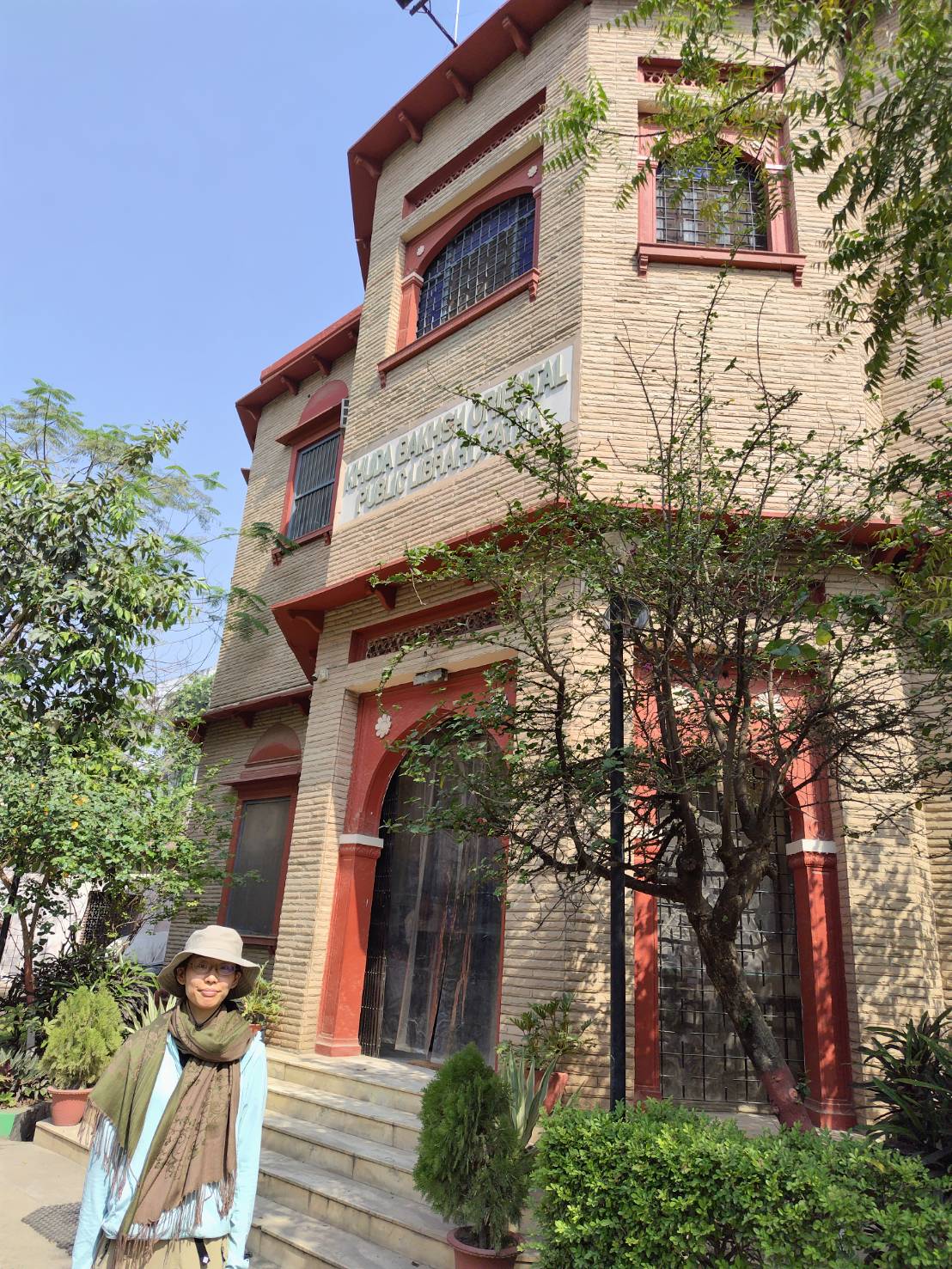
Hiroki SAKAI
Hiroki SAKAI is Professor at Wako University. He specializes in Central Eurasian cultural history and Turkic oral literature. His research focuses on the heroic epics of the Turkic peoples of Central Asia. His major publications include Ural Batyr (Heibonsha Toyo Bunko, 2011); Alpamys Batyr (Heibonsha Toyo Bunko, 2015); “Heroic Lore of the Turks,” “’Chora Batyr’ of Central Eurasia,” in Ogihara, Mako and Akira Fukuda, eds., Heroic Epic (Miyai Shoten, 2018); “Turkic Heroic epic tale Er Toshtuk and Japanese Mythology,” «Si est tens a fester»: Hommage à Philippe Walter, edited by Kôji Watanabe, CEMT Editions (Tokyo), 2022.
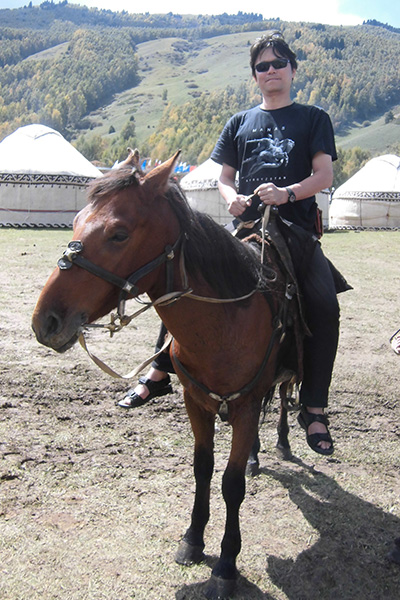
Yuriko YAMANAKA
Yuriko Yamanaka is Professor at the National Museum of Ethnology and the Graduate University of Advanced Studies. She received her PhD from the University of Tokyo in Comparative Literature and Culture. For her book Allegoresis of Alexander: from Antiquity to Mediaeval Islam (Nagoya University Press, 2009) she has been awarded the Japan Academy Medal (2011). She has also edited The Arabian Nights and Orientalism: Perspectives from East and West (I.B. Tauris, 2006), and Cultural History of Marvels in Europe and the Middle East (Nagoya University Press, 2015). She is the principal investigator of a JSPS Grant-in-Aid project “The Natural and the Supernatural in Comparative Perspective”, the result of which was a Special Exhibition “REGNUM IMAGINARIUM: Realm of the Marvelous and Uncanny” held at the National Museum of Ethnology in 2019.
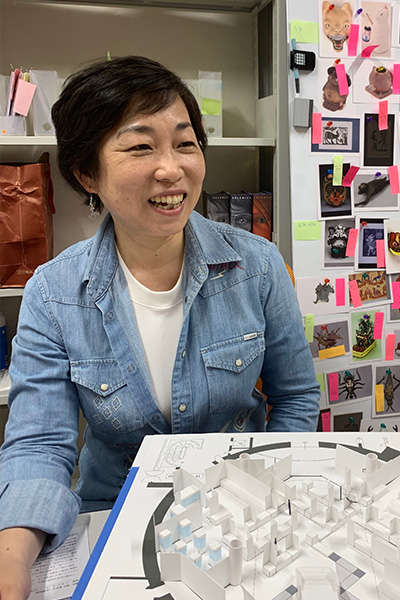
Research Collaborator
- Sacha ALSANCAKLI (Research Institute for Languages and Cultures of Asia and Africa, Tokyo University of Foreign Studies)
- Peter GOOD (University of Bergen)
- Kazue HOSODA (Research Institute for Languages and Cultures of Asia and Africa, Tokyo University of Foreign Studies)
- Nicholas MANGIALARDI (Williams College)
- Ryo MIZUKAMI (Faculty of Humanities, Japan Women’s University)
- Zahra MOHARRAMIPOUR (International Research Center for Japanese Studies)
- Pegah SHAHBAZ (University of Toronto)
- Kumiko YAMAMOTO (Research Institute for Languages and Cultures of Asia and Africa, Tokyo University of Foreign Studies)
